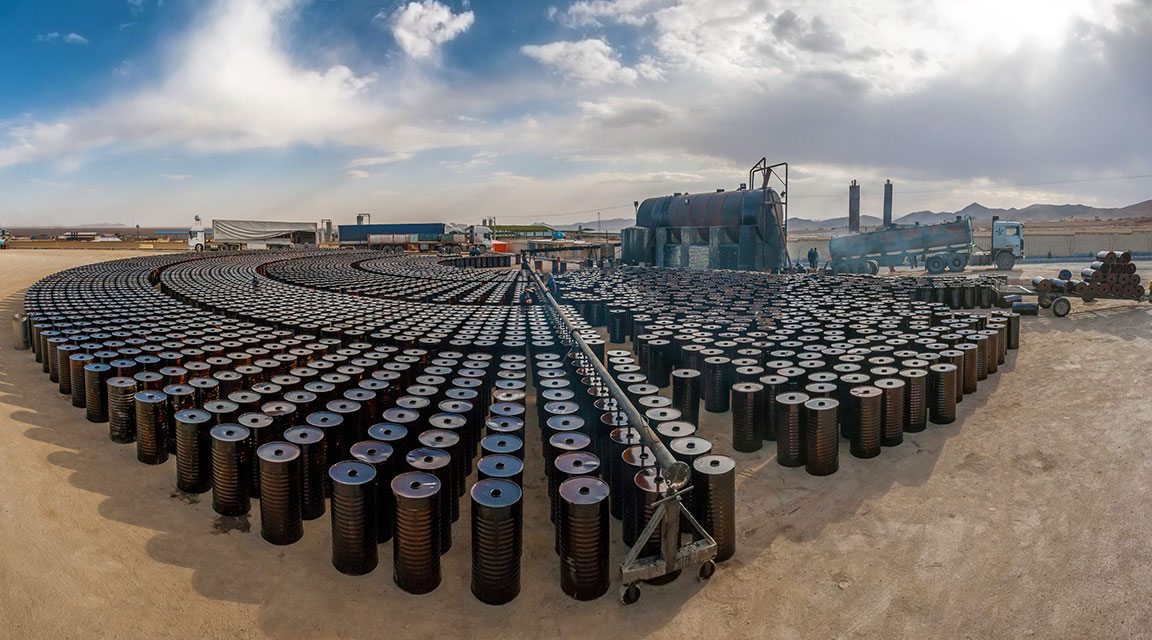

There is a strong possibility that Iran’s nascent oil and gas projects boom will end in 2018 as the country’s ambitions of ramping up production and exports are undermined by a rapidly souring political relationship with the US.
Iran was the stand-out country in the Middle East and North Africa (Mena) region over 2017, with major oil and gas contract awards totalling $11.8bn over the year.
This was more than double the value of contract awards the previous year, more than any other nation in the region, and $3.5bn more than Saudi Arabia, which was ranked second in the region for contract awards.

As well as having the biggest total value of contract awards, Iran also topped the list when it came to the biggest individual deal signed.
This was the $4.25bn contract for the second part of phase 12 of the South Pars gas field development, won by a joint venture of South Korea's Hyundai Engineering Company and Hyundai Engineering & Construction Company.
Iran also saw three other major contract awards in the Mena top 10, including the $2.4bn award for the South Pars gas field natural gas liquids plant, which is also part of the phase 12 development scheme.
The scene was set for this surge in contract awards on 2 April 2015 in Switzerland, when the framework for a comprehensive agreement on the Iranian nuclear programme was announced by representatives from Iran, France, Germany, the UK, the US, China, Russia and the EU.
This was quickly followed by the publication of the Joint Comprehensive Plan of Action (JCPOA), which was published on 14 July and based on the framework announced in April.
In the wake of the framework agreement, Iran saw a rapid increase in projects activity across the board, with France's Total signing the $4.8bn deal to develop South Pars on 3 July 2017.
According to data recorded by regional projects tracker MEED Projects, the value of all active oil, gas and chemicals projects increased by 51 per cent from $141bn at the beginning of April 2015 to $214bn in mid-November 2017.

Since April 2015, the value of projects in the study phase has quadrupled to more than $77bn.
The future for these projects now looks very uncertain due to announcements by US President Donald Trump in the latter half of 2018.
On 13 October, Trump dealt a significant blow to the Iranian nuclear agreement, saying he would not certify whether Tehran was complying with the deal and threatening to put new sanctions on the Islamic Revolutionary Guard Corps (IRGC).
This has raised huge questions over the future of both the tens of billions of dollars-worth of projects that are in pre-execution as well as projects that have seen contracts awarded, such as Total’s deal to develop the South Pars field.
There are a wide range of possible scenarios that could pan out over 2018 depending on the actions taken by the US.
It is still unclear when a vote would take place on possible sanctions and what the new sanctions would look like, but they could stop companies working in Iran from also operating in the US.
Total has significantly larger operations in the US and it is likely the company’s CEO, Patrick Pouyanne, will pick the US over Iran if his hand is forced.
As things stand, Total has publicly made it clear it is committed to pursuing the South Pars project.
In November, the company said tenders have already been launched and deals should be awarded in January.
If Total does pull out, the South Pars project may continue with China National Petroleum Corporation (CNPC) taking over Total’s 50.1 per cent stake, according to a Reuters report published in December that cited anonymous sources.
CNPC currently has a 30 per cent stake in the project, while the Iranian national oil company’s subsidiary PetroPars holds the remaining 19.9 per cent.
Sanctions that focus specifically on the IRGC would also affect projects being executed by Khatam al-Anbiya Construction, Iran’s biggest construction company, which is controlled by the IRGC.
Projects being executed by Khatam al-Anbiya Construction include National Iranian Oil Company’s (NIOC's) project to develop the South Yaran oil field, which has an estimated budget of $2bn, according to MEED Projects.
The possibility of an improvement in relations between the US and Iran over coming months seems unlikely.
On 27 December, Iran's Supreme Leader Ayatollah Ali Khamenei ramped up the war of words between the two nations, saying that Donald Trump would fail in his efforts to impose his will on Iran, saying Tehran was stronger than during the time of the “more powerful and smarter” Ronald Reagan.
You might also like...

Oman receives Madha industrial city tender prices
19 April 2024

Neom seeks to raise funds in $1.3bn sukuk sale
19 April 2024

Saudi firm advances Neutral Zone real estate plans
19 April 2024

Algeria signs oil deal with Swedish company
19 April 2024
A MEED Subscription...
Subscribe or upgrade your current MEED.com package to support your strategic planning with the MENA region’s best source of business information. Proceed to our online shop below to find out more about the features in each package.








